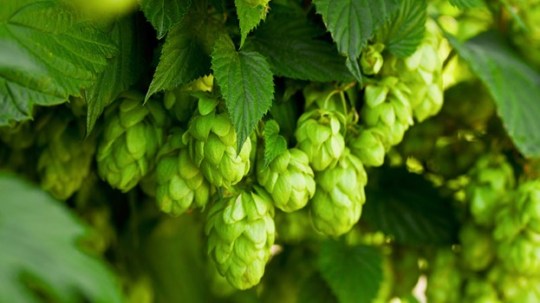
[Photography:
Eduard Bonnin/Stocksy]
Can you drink yourself pretty? In April 2015, Japanese brewing company Suntory launched a new light beer called Precious that contains two grams of collagen in each can. Suntory claims that drinking collagen — a naturally occurring protein that gives skin its elasticity — will make you look younger. When injected, collagen does reduce signs of aging by making skin look plump and smoothing out lines and wrinkles. But there is no scientific evidence that drinking collagen will make you look prettier; in fact, because collagen is a protein, your digestive system will just break it down before it even has a chance to reach your skin.
So collagen-infused beer may not be the fountain of youth, but regular beer does come with many surprising health benefits, from brightening your smile to heading off dementia. While you may hear more about the healthy effects of red wine, beer is just as rich in beneficial chemicals called polyphenols.
Here are eight healthy reasons to enjoy a brewsky once in a while:
1 - Beer Fights Inflammation

[Photography:
Getty Images]
Hops, the female flowers of the hop plant, give beer its tangy, bitter taste. These bright green buds are also chock-full of chemicals known as bitter acids, which have an array of health-promoting effects. Bitter acids are powerful inflammation fighters, according to a 2009 laboratory study published in Molecular Nutrition and Food Research. One type of bitter acid, humulone, offers promise for both preventing and treating viral respiratory infections in a 2013 study funded by Japanese beer manufacturer Sapporo.
2 - Beer Aids Digestion

[Photography:
Getty Images]
Bitter acids in beer may also improve digestion. A 2012 study published in the Journal of Agricultural and Food Chemistry looked at five types of German and Austrian beer and found that each triggered the release of gastric acid from stomach cells. The more bitter acids a brew contained, the greater the response. Gastric acid is key for both digesting food in the stomach and controlling the growth of dangerous gut bacteria.
3 - Beer May Prevent Some Cancers

[Photography:
Getty Images]
Lots of chemicals found in beer have
shown promise in preventing or even treating cancer — although studies
so far have been in Petri dishes and rodents. One type of bitter acid,
lupulone, wiped out tumors in rats with colon cancer who consumed it in
their drinking water, according to a 2007 study published in Carcinogenesis. Xanthohumol, another beer ingredient, also looks promising. A 2010 study by an Austrian research team found that xanthohumol shut down abnormal cell growth and prevented DNA damage in rats exposed to cancer-causing chemicals.
The researchers say xanthohumol is likely to be good for humans too,
since its cancer-fighting effects were seen at relatively low doses —
equivalent to what people would get with moderate beer consumption.
4 - Beer Builds Bones

[Photography:
Getty Images]
Beer is a great source of silicon, which is important for building and maintaining healthy bones. In fact, the form of this mineral that’s found in beer, orthosilicic acid, is extra easy for the body to metabolize, according to a 2013 report in the International Journal of Endocrinology. If you’re looking for a brew that will build your bones, try an India pale ale. IPAs and other beers with lots of malted barley and hops are the best beer sources of silicon, according to a 2010 report from University of California, Davis researchers.
5 - Beer Is Heart-Healthy

[Photography:
Shutterstock]
Huge studies have found a 25 percent lower risk of heart disease in people who drink from one-half to two drinks daily, compared to abstainers. And alcoholic beverages that are rich in polyphenols — think beer! — may be especially good for the heart, according to a 2012 research review.
Beer has benefits for people who already have heart disease, as well as for healthy folks. Men who had survived a heart attack were nearly half as likely to die over the next 20 years if they drank a couple of beers a day, Harvard researchers reported in 2012.
6 - Beer ‘Polishes’ Your Teeth

[Photography:
Adam Hester/Getty Images]
That slimy stuff that collects on your teeth if you haven’t brushed in a while? It’s called biofilm, and beer can keep it from forming — and even help get rid of it. UK researchers tested the effects of several plant-derived extracts on bacteria that form biofilm and promote tooth decay and gum disease. Even the weakest extract of beer tested blocked the activity of bacteria associated with gum disease and tooth decay in the study, published in 2012 in the Journal of Biomedicine and Biotechnology. In fact, for wiping out biofilm, beer beat out black-tea, raspberry, and all other extracts tested. It was also among the best for blocking communication among dental-disease-causing bacteria.
7 - Beer Protects Brain Cells

[Photography:
Katie Nesling/Getty Images]
Xanthohumol — that chemical found in beer that can shrink liver tumors in rats — can also protect brain cells from oxidative damage, according to a 2015 study from China. Austrian researchers reported in 2013 that xanthohumol and other beer ingredients promoted the growth and development of neurons — in the lab.
8 - Beer Prevents Kidney Stones

[Photography:
Warren Goldswain/Stocksy]
A study in nearly 200,000 patients published in 2013 showed that while sugary soda and punch boosted kidney-stone risk, beer drinking reduced the likelihood of kidney stone formation by 60 percent. “Our study suggests that beer consumption is associated with reduced risk of forming stones in three large U.S. cohorts,” says Pietro Manuel Ferraro, MD, of the Catholic University of the Sacred Heart in Rome.
This article was published on 16th March 2015 by Anne Harding in Everyday Health, under the title “8 ways beer is good for you”